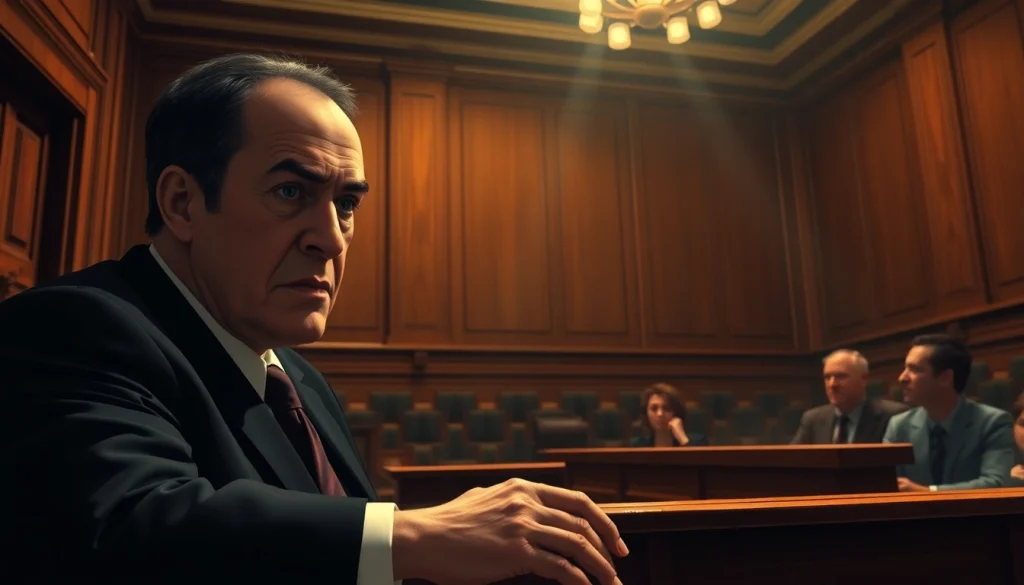Introduction to Yitzhak Ofier’s Case
Overview of Key Details
The case of Yitzhak Ofier has garnered significant attention in recent months, particularly due to its implications for the broader landscape of organized crime and law enforcement in the United States. Yitzhak Ofier, a figure alleged to be involved in illegal activities, is currently facing serious legal charges. Understanding the intricacies of his case requires a dissection of the events leading up to his arrest, the charges he faces, and the potential ramifications both for him and the legal system at large.
Significance within the Legal Context
The implications of Yitzhak Ofier’s case extend well beyond the courtroom. It serves as a critical examination of how organized criminal activities operate and how the legal system responds to them. The case involves the intersection of various laws including racketeering, conspiracy, and other related offenses, which pose a challenge to prosecutors. Moreover, analyzing this case provides insights into the tactics employed by organized crime groups and the evolving strategies utilized by law enforcement to combat them.
Implications for Future Cases
Yitzhak Ofier’s case may set precedents for future legal proceedings, particularly in how similar cases are prosecuted. The outcomes can influence legislative reforms aimed at tackling organized crime and illicit enterprises. Additionally, legal experts are closely monitoring this case for its potential to reshape jury perceptions and sentencing guidelines as they relate to individuals with ties to organized crime.
Legal Framework and Charges Against Yitzhak Ofier
Understanding the Legal Charges
The legal framework surrounding Yitzhak Ofier’s case involves multiple charges, which may include conspiracy, racketeering, and possibly others. It’s essential to understand that these charges stem from a broader investigation into organized crime activities in the region, and the evidence collected by law enforcement agencies plays a critical role in building a case against the accused.
Historical Overview of Similar Cases
Historically, cases involving organized crime figures share common elements, including complex networks of illicit activities and extensive evidence gathering. For instance, the prosecution of figures within organized crime has often relied on wiretaps, undercover operations, and witness testimonies. By examining similar cases, one can gain insights into what challenges the prosecution might face in Yitzhak Ofier’s case and how defense strategies have evolved over the years.
Potential Defenses and Legal Strategies
In the context of legal battles, potential defenses for Yitzhak Ofier might include arguments around the legality of the evidence collected, claims of entrapment, or even challenging the credibility of witness testimonies. Legal strategies will likely pivot around presenting a compelling narrative that raises reasonable doubt regarding his involvement in the alleged criminal activities.
Media Coverage and Public Perception of Yitzhak Ofier
How Media Influences Public Opinion
The media plays a vital role in shaping public perception, especially in high-profile criminal cases like that of Yitzhak Ofier. Sensational coverage can sway public opinion, often leading to preconceived notions about the accused even before the trial begins. The framing of the case within media narratives can either exacerbate or soften community reactions, which ultimately can influence jury selections and proceedings.
Analysis of Representation in News Outlets
Different news outlets portray Yitzhak Ofier’s case through varied lenses. Some may emphasize his alleged criminal ties, while others might focus on the legal complexities involved. Understanding the nuances in reporting allows for a critical analysis of how information is presented to the public and the potential ramifications on fairness and justice in the legal process.
Impact of Social Media on the Case
Social media platforms serve as a double-edged sword in criminal cases. They provide a venue for public discourse but can also lead to the dissemination of misinformation. The rapid spread of opinions on platforms like Twitter and Facebook can create a frenzy that complicates legal proceedings, making it vital for legal teams to be aware of public sentiment and possibly address concerns raised in this digital arena.
Challenges in the Legal Process for Yitzhak Ofier
Typical Procedural Hurdles
The legal process can be prolonged and fraught with numerous procedural challenges. In the case of Yitzhak Ofier, the complexity of his charges may require extensive investigations and pre-trial motions, which can delay proceedings. Navigating these hurdles requires meticulous planning and understanding of both state and federal legal protocols.
Common Misunderstandings in Legal Proceedings
Many people hold misconceptions about how legal proceedings work. For instance, there is often an assumption that a case will quickly resolve itself, which is rarely the reality. In high-stakes cases like those involving organized crime, the legal process can be lengthy, involving multiple hearings and negotiations that are unseen by the public eye.
Resources for Legal Defense
Access to quality legal defense is crucial. Organizations like legal aid societies, educational resources about defendant rights, and various legal consultation services can provide essential support for individuals like Yitzhak Ofier. Moreover, understanding the potential costs of legal fees and the importance of retaining experienced attorneys cannot be overstated.
Conclusion: The Road Ahead for Yitzhak Ofier
Possible Outcomes and Next Steps
The road ahead in the legal journey for Yitzhak Ofier will depend heavily on the efficacy of his legal representation and the evidence presented by the prosecution. Possible outcomes range from dismissal of charges to convictions, each with significant ramifications on both personal and communal levels.
Importance of Legal Representation
Adequate legal representation is paramount in navigating the complex waters of criminal law. The expertise of an attorney can make a substantial difference in the case’s outcome, highlighting the need for accused individuals to understand their rights and the legal processes at play as they prepare their defense.
Community Support and Advocacy Efforts
Community involvement can significantly impact high-stakes legal cases. Advocacy efforts, whether through peaceful rallies or petitions, can bring attention to potential injustices or raise awareness of the case’s intricacies. Ultimately, the outcome of Yitzhak Ofier’s case reflects not only on the individual involved but also on the legal system and societal views on organized crime and justice.
